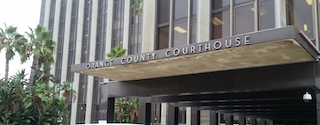In many of our cases, our client will be eager to ensure that the victim’s criminal history or the criminal history of a witness is considered. The client usually has no criminal history in such cases. The victim or witness may indeed have an ulterior motive, often ultimately financial, in reporting our client to the police. The client will suggest hiring a private investigator to look into this, as this is often done in movies and in television shows.
Why This Article Matters: While it may give a client peace of mind to know immediately if a victim or witness has a criminal history, such information is the obligation of the prosecutor to provide. More fundamentally, the type of prior criminal history of the victim or witness is what matters. A history for crimes of dishonesty and providing false information to police are most useful.
However, hiring a private investigator to uncover such a criminal history is often unnecessary and an expense that can be avoided. Under Penal Code § 1054.1(d)-(e), as well as Evidence Code §§ 452.5(b) and 788, including a long line of both U.S. Supreme Court cases and California opinions, prosecutors must look into and make available to the defense information about the felony and misdemeanor convictions of material prosecution witnesses whose credibility is likely to be important to the outcome of trial. Brady v. Maryland (1963) 373 U.S. 83, 10 L. Ed. 2d 215, 83 S. Ct. 1194; People v. Duran (2002) 97 Cal.App.4th 1448, 119 Cal.Rptr.2d 272; People v. Little (1997) 59 Cal.App.4th 426, 68 Cal.Rptr.2d 907; People v. Santos (1994) 30 Cal.App.4th 169, 35 Cal.Rptr.2d 719.
This obligation to disclose criminal histories includes a duty to also advise on any pending criminal actions against such prosecution witnesses (People v. Martinez (2002) 103 Cal.App.4th 1071, 1078, 127 Cal.Rptr.2d 305) and whether the witness in on probation (Millaud v. Superior Court (1986) 182 Cal.App.3d 471, 227 Cal.Rptr. 222).
 Santa Ana Courthouse
Santa Ana Courthouse
Such a wide amount of information suggests that rap sheets must be disclosed, as the information on the rap sheet is almost all discoverable.
However, People v. Roberts (1992) 2 Cal.4th 271, 308, 6 Cal.Rptr. 276 and People v. Santos, supra, held to the contrary. In our experience, what we have seen is that the prosecutor will verbally share the information, but the prosecutor will not just hand over a photocopy of the witness’ rap sheet like we crave. Alternatively, the prosecutor will show us the rap sheet for a witness, but not provide us a copy.
If the information the prosecution has concerns arrests and convictions is covered by Brady v. Maryland, supra, i.e. felony convictions and misdemeanor conviction involving crimes of moral turpitude, the prosecution must disclose this even without a formal defense request. However, we suggest a formal request be submitted nonetheless.
The issue then becomes when the prosecution must do so. In other words, can the prosecution develop such information and then withhold it from the defense until the eve trial? Or must the prosecution immediately disclose it upon receiving it? As one might appreciate, if a plea bargain is almost reached and disclosure of such material might change the terms of the plea bargain, some prosecutors may not want to share this information, especially if the prosecutor is particularly zealous about the case.
The answer seems to be no later than fifteen calendar days after required discovery disclosures are requested, under Penal Code § 1054.5(b), or no later than 30 calendar days prior to trial. Penal Code § 1054.7. See Sandeffer v. Superior Court (1993) 18 Cal.App.4th 672, 677, 22 Cal.Rptr.2d 261.
Lastly, it is important to appreciate that impeachment material is discoverable to a broader degree than just the actual convictions and arrests, as it is information favorable to the accused.
See Brady, supra. For example, the conduct underlying a misdemeanor conviction is discoverable for impeachment purposes.
See People v. Wheeler (1992) 4 Cal.4th 284, 14 Cal.Rptr.2d 418;
In re Pratt (1999) 69 Cal.App.4th 1294, 82 Cal.Rptr.2d 260;
People v. Hayes (1992) 3 Cal.App.4th 1238, 1243, 5 Cal.Rptr.2d 105.
For more information about witness impeachment issues, please click on the following articles:
- Conviction for Aiding and Abetting Murder Reversed When Prosecution Fails to Disclose That Key Witness Has Theft Conviction and Gang Affiliations
- Sex Crime- Defendant Has Right at Trial to Present Evidence of Alleged Victim’s Prior False Sexual Assault Claims
- How Do I Prevent my Prior Conviction from Being Impeachment?
Contact us.  Santa Ana Courthouse
Santa Ana Courthouse